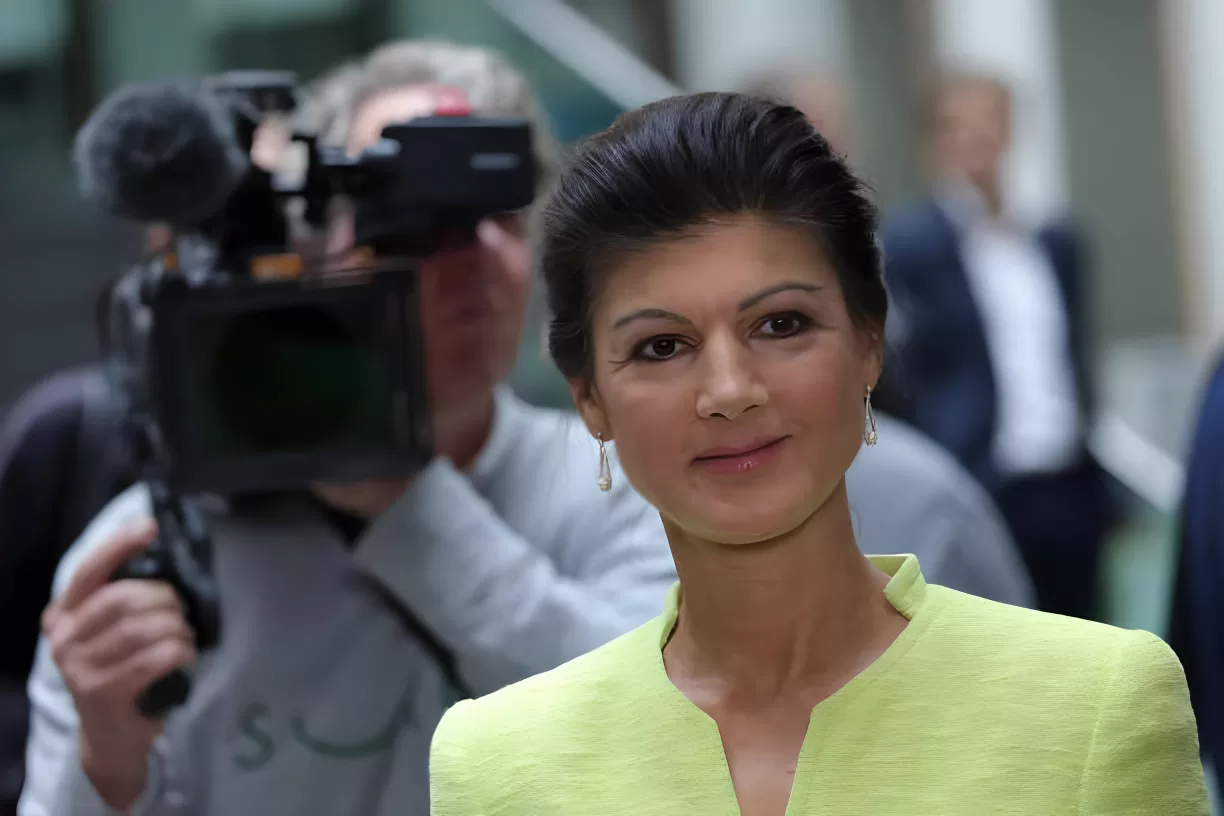Sahra Wagenknecht, born in the German Democratic Republic as the daughter of an Iranian father and a German mother, is a prominent figure in Germany’s left-wing political sphere. She recently revealed plans to establish a new political party. Wagenknecht, well-known for her role in The Left, a party with origins in East Germany’s Communist Party, intends her party to resonate with a significant portion of German voters who feel alienated by conventional politics.
“In these times of global political crises, it seems Germany might be facing its worst government in history,” Wagenknecht said. “A growing number of people are uncertain about whom to support, often resorting to voting out of frustration or despair.”
While Wagenknecht continues to advocate traditional leftist policies like a robust welfare state, her views have evolved to encompass certain right-leaning social issues, offering a unique blend of ideologies.
She shares concerns similar to those of the AfD, criticizing the German government for seemingly favoring urban centers while overlooking the needs of rural communities. Additionally, Wagenknecht is not happy with the government’s approach to accelerating the green energy transition, which she calls “blind, unplanned eco-activism,” particularly criticizing new regulations affecting how Germans heat their homes. This stance reflects her commitment to addressing the concerns of a broader spectrum of the electorate, not just those traditionally aligned with left-wing politics.
One goal of Wagenknecht’s upcoming party is to weaken the AfD. Wagenknecht has several times outlined her position on the AfD (Alternative for Germany). A portion of the AfD’s voter base should receive a “serious offer” — an alternative to the self-proclaimed alternative. Wagenknecht has repeatedly addressed workers and small business owners, groups that often vote for the AfD. She will not abandon any positions just because the AfD holds them, but she will also not collaborate with the AfD. However, she considers majorities that come about with the AfD’s votes to be unproblematic.
Wagenknecht questions the handling of Ukrainian war refugees. “If Ukrainians return to their homeland, live there in fact, and only come here to receive benefits, then that raises big question marks,” she said. “I know specific cases. In my hometown, entire houses were rented for Ukrainian refugees, and the neighbors were surprised that no one was there.”
Europe and the United States have not done enough to end the war in Ukraine, Wagenknecht asserts. Instead, the German government has unilaterally relied on the military option, missing the stated goals. Wagenknecht would choose a completely different approach to Russia and recommends resuming gas imports. “There is no other short-term solution to lower energy prices,” Wagenknecht said. “We must see our advantages.” She criticized that liquefied gas from Russia continues to reach Germany and Europe through LNG imports.
Wagenknecht also demands a different migration policy not only in dealing with Ukrainians. She argues for noticeable cuts in benefits for rejected asylum seekers in Germany. “Those who do not have an asylum claim should receive only very minimal benefits,” she said. In this regard, Germany should take Denmark as a model. When asked if she really wanted to cut benefits for the “poorest of the poor,” Wagenknecht replied, “The poorest of the poor do not come to Germany. They can’t afford to pay the smugglers.” She aims to “send a signal to the world: ‘We are overwhelmed, we can’t handle it anymore.’”







